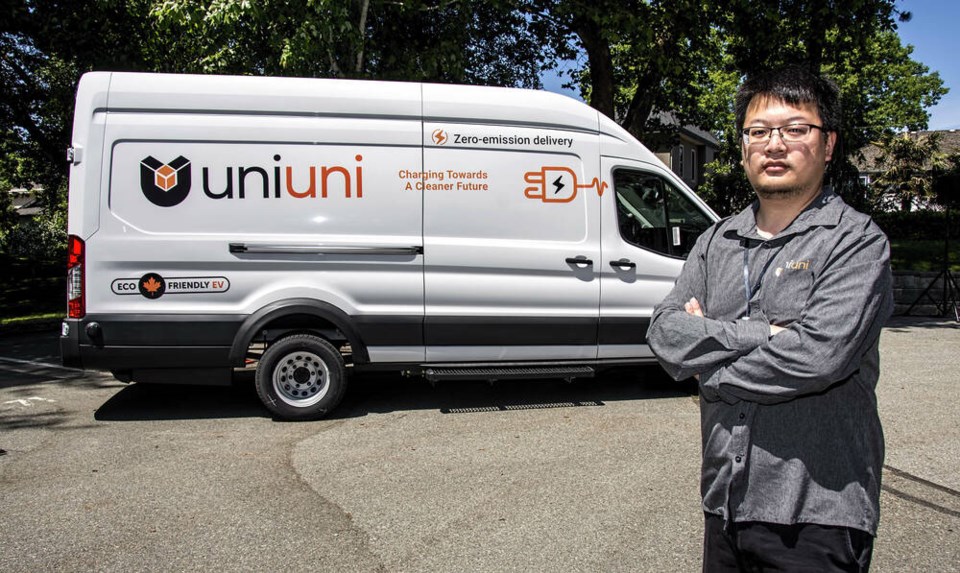With e-commerce booming, a Richmond company that delivers for two of the fastest-growing e-commerce companies in Canada, is seeing rapid growth as well.
Founded in 2019, UniUni started with four employees but today has more than 200 staff and is delivering 20 million parcels annually across Canada.
Behind the north Richmond delivery company’s record growth are two major clients – Shein and Temu – two e-commerce platforms founded in China that are currently the No. 1 and No. 2 ranked apps in Canada in all categories – the ranking factors in current installs and active users.
“We worked with Shein since the start as their delivery company in Canada – it’s been three and half years now, and we have grown with the company,” said Kevin Wang, co-founder of UniUni.
As the exclusive delivery company for Shein in Canada, UniUni is responsible for transporting products from the airport to warehouses in Canada, and then delivering them to customers’ doors.
The value of Shein, a fast fashion e-commerce platform, has grown from $5 billion in 2019 to $100 billion in early 2022 – although its value declined to $64 billion in 2023.
In May 2022, its app was downloaded 308,000 times in Canada that month.
“Shein was a new company when we started the partnership. Their growth increased our volume, and our service has ensured their customers have had a great purchasing experience – we helped each other succeed,” said Wang.
Later, UniUni won a contract with Temu, another online shopping app, to become its delivery service, alongside Canada Post. Temu entered the Canadian market in February and soon became one of the most popular apps in the country.
Unique business model wins big clients
UniUni’s lower pricing and faster services helped it win the favour of these e-commerce giants, due to its unique business model and cutting-edge technology, Wang explained.
At the beginning of the pandemic, Wang and co-founder Peter Lu started a food delivery company – but they were struggling to compete with big players like Uber Eats and DoorDash.
However, the two saw the huge surge in demand for delivery services – when COVID-19 hit, big delivery companies couldn’t hire enough people nor procure enough vehicles to keep up with demand.
Wang and Lu then pivoted their business to delivering parcels instead of food, but using a model similar to food delivery services – hiring individual contract drivers who used their own cars.
“It’s a new crowdsourcing model. We use a driver’s own vehicle to do the delivery so there is no need for us to purchase more vehicles,” said Wang.
The company also invested heavily in technology to optimize the routing to help drivers provide faster service and further bring down costs.
“For example, 50 per cent of the delivery stops used to be on the driver’s right side. Now we can optimize our route so more than 70 per cent of the stops are on the driver’s right-hand side, so they don’t need to go cross the road or do a turnaround,” said Wang, adding the delivery fee can be as low as half of the regular price.
The company announced last week it’s adding two electric vehicles to its fleet between the airport and the warehouse. It now employs more than 5,000 drivers with their own vehicles and plans to expand to the U.S. market in the future.
“Our target is one million packets per day in the next couple of years,” said Wang.



